Pilot whales strand themselves at Cheynes Beach, WA
Mystery surrounds why more than 50 whales, now perished, beached themselves on a remote strip of West Australian coastline as the fight to keep the remaining 45 alive continues.
Heartbroken volunteers have watched in despair as the 45 whales they tried to save a day after a mass beaching restranded themselves.
The pilot whales were part of a larger pod that beached at Cheynes Beach, east of Albany in southern Western Australia, on Tuesday.
A total of 50 died by Wednesday morning, and hundreds of experts and volunteers have been trying to help the remaining whales.
By late Wednesday, they ushered the whales out to deeper water but they rebeached, WA’s Parks and Wildlife Service said.
“Sadly, despite best efforts from volunteers and Parks and Wildlife Service staff, the whales have re-stranded further along the beach,” the service said in a Facebook post.
“Veterinarians will continue to assess the re-stranded whales and advise of the most appropriate course of action to ensure the most humane outcome for the whales.
“Our team will remain at Cheynes Beach overnight to monitor the whales’ welfare.
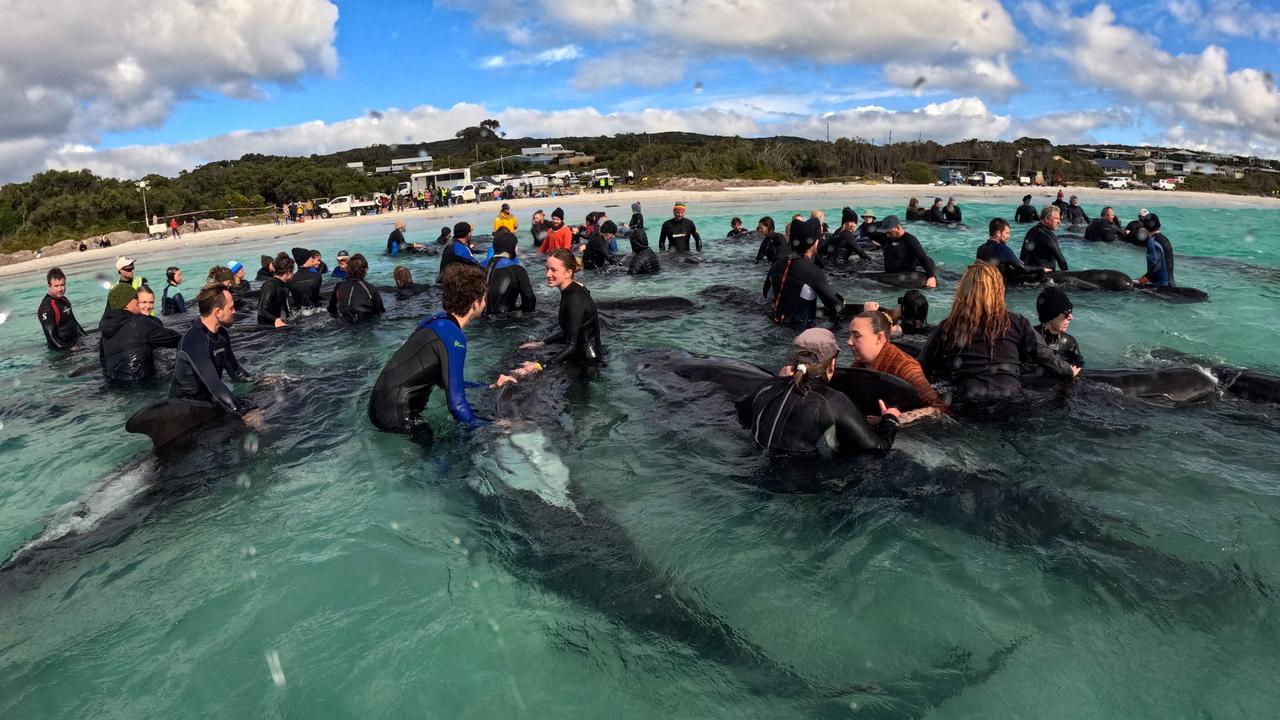
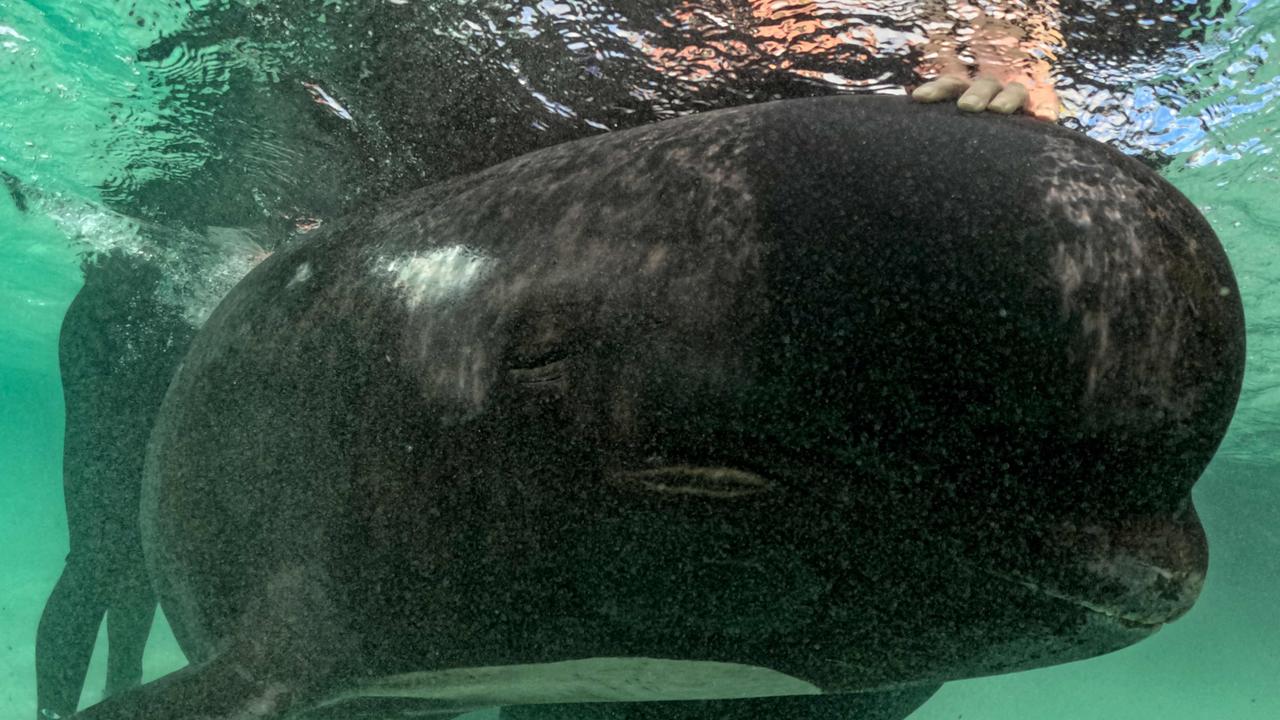
Earlier on Wednesday, incident controller Peter Hartley said they we’re optimistic the whales could be save.
“It’s highly stressful for the volunteers and the staff and you have to have something to hold onto. We’re optimistic and hopeful at this stage,” he said.
More than 250 registered volunteers and 100 staff from the Parks and Wildlife Service and other agencies had worked tirelessly in and out of the water to keep all 45 pilot whales alive throughout the day.
.
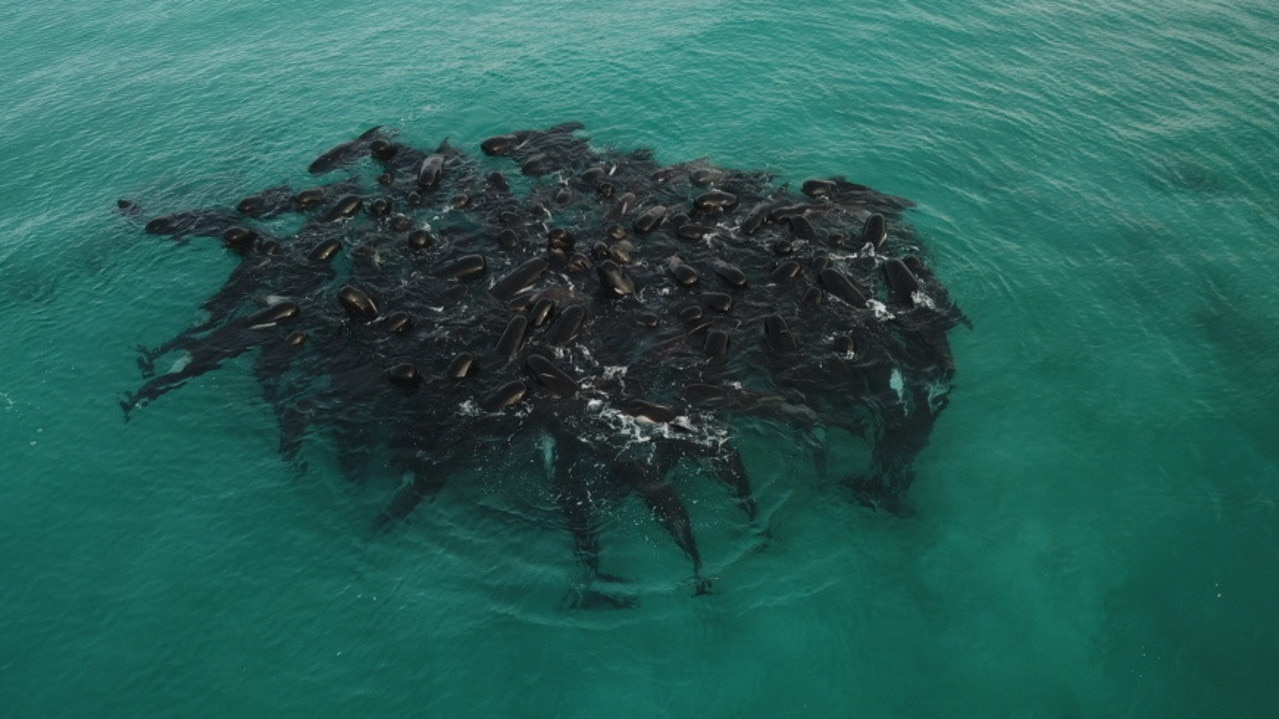
Mr Hartley said the plan had been to nurse the whales until they felt they were strong enough for the attempt to get them to deeper water.
“We’re analysing their behaviour and once they’ve all recovered and we believe they are strong enough, we will then release them as a pod,” he said
Staff used small vessels and surf skis to try to “safely and gently move the animals into deeper waters, giving them the best chance of survival.”
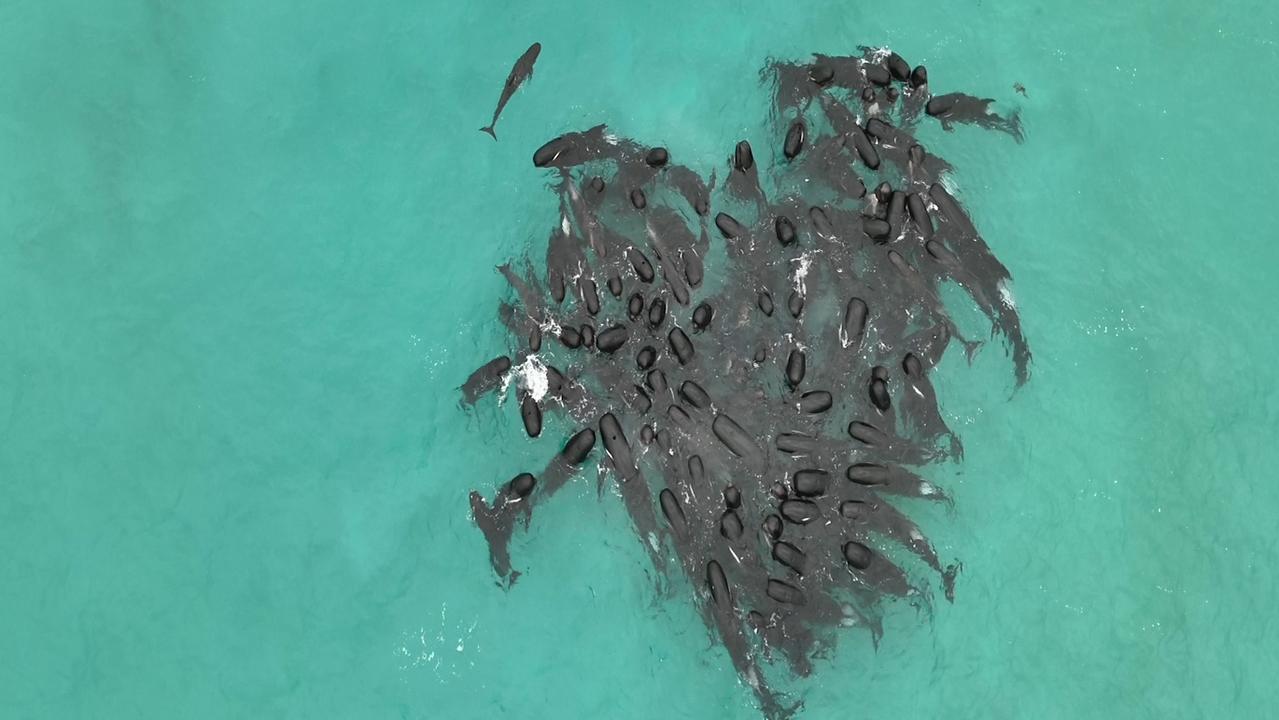
Authorities warned of the “range of hazards” in the response zone, including sharks.
“The priority focus of the incident management team is to ensure the safety of staff and volunteers and the welfare of the whales. The response zone has a range of hazards, including large, distressed and potentially sick whales, sharks, waves, heavy machinery and vessels.”
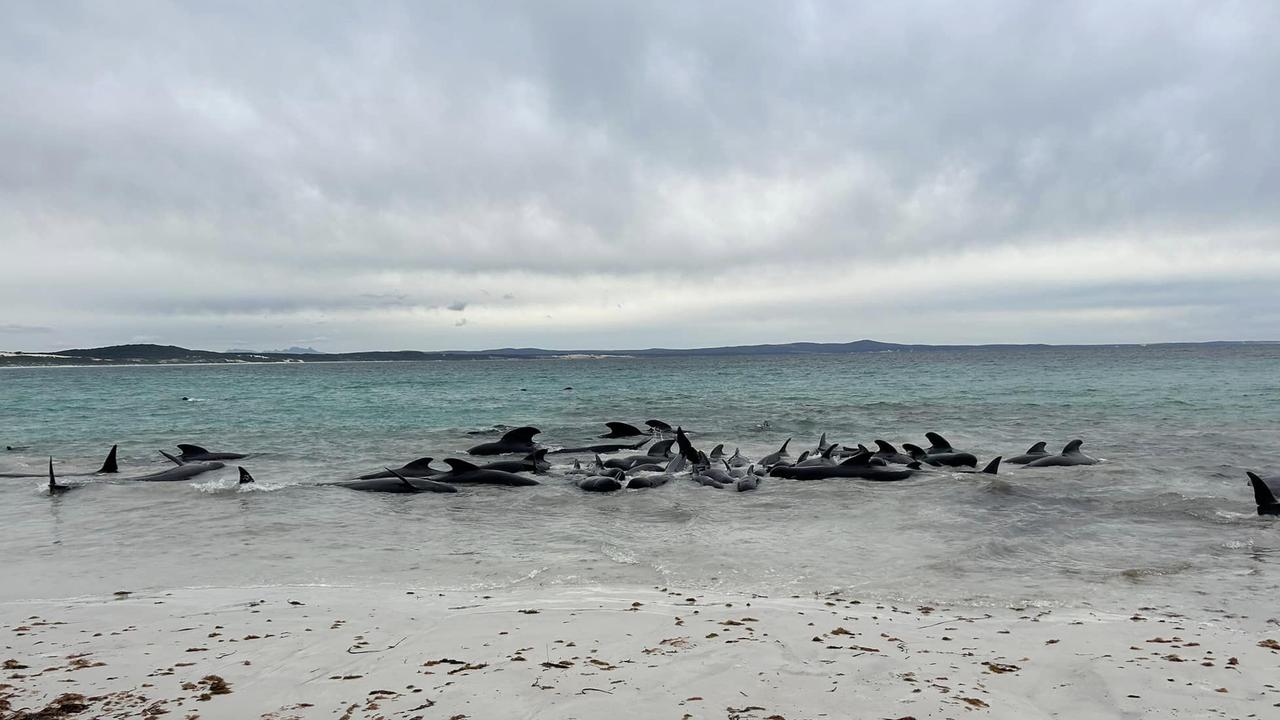
The Department initiated the operation to save whales after they were informed that a large pod of the whales had grouped off Cheynes Beach before stranding themselves.
Despite the help of a large number of registered volunteers, at least 51 of the whales were confirmed to have died on Wednesday morning.
It is not know what led the pilot whales to beach themselves.
More Coverage
Long-finned pilot whales live off the southern coast of Australia, their habitat stretching from waters in WA to South Australia, Victoria, Tasmania and southern NSW. They are also found in New Zealand, South America, South Africa and the Arctic.
They are notorious for mass strandings, especially in New Zealand where they beach themselves in high numbers from December to March.
When beached, the animals die from overheating or from being slowly crushed to death by their own weight.




